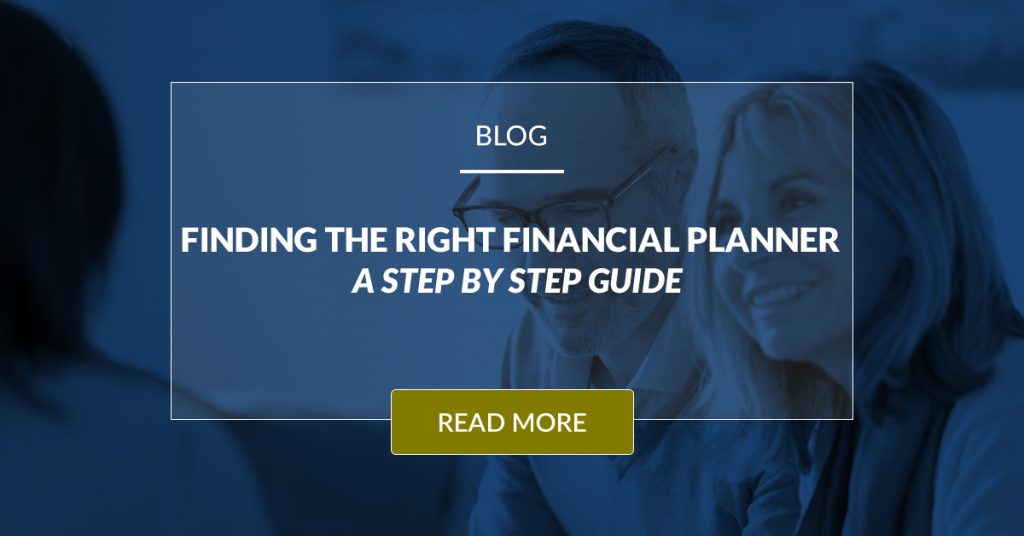Perhaps you’ve worked occasionally with a financial advisor in the past, but for the most part you’ve been in charge of your managing your own finances. With the passage of time, your assets have increased while your time and interest level in managing your finances have gone down. Add in the growing complexity of the tax code and financial markets and you are now ready to reach out to hire a financial planner. So, how do you begin?
Types of Financial Advisors
Review in advance what you’re looking for from a financial advisor. An advisor who provides ‘stock tips’ and focuses solely on investments is different than a financial planner who is an expert in retirement planning and is skilled in managing all aspects of your finances.
Finding Experienced Advisors
Ask for referrals from your CPA, Attorney and trusted friends to their financial planners. Websites like www.NAPFA.org will provide information of advisors in your area. Identifying a group of 3-5 advisors to review is a great start.
Researching Financial Advisors
Before you schedule an introductory phone call, review each advisor’s website to see if they provide the services you’re looking for. Read through their blogs to identify areas of expertise and the depth of services they offer. Closely review the ‘News’, ‘Community’, and ‘About Us’ tabs to learn about the culture and values of the firm.
Interviewing Financial Advisors
Contact the top 2-3 advisors from your search to schedule an introductory meeting. Use the meeting to clarify each advisor’s value proposition, relative to your needs. Be open minded in learning from each advisor. You may find your wants and needs changing as you learn more from each advisor. Keep in mind you’ll likely be working with your advisor for years, possibly decades, so identifying a comfort level with their personality and values is an important consideration.
What to ask when looking for a Financial Advisor
There are several key questions to ask the advisor; most importantly is how they charge for their services. An advisor who has the ability to sell financial products, such as insurance or annuities, has a financial incentive to make recommendations that may be counter to your interests. Working with a Fee-Only financial advisor ensures the highest level of fiduciary advice. To see a list of key interview questions, visit: https://www.napfa.org/financial-planning/how-to-find-an-advisor
It’s important to evaluate your relationship with your advisor from time to time to ensure things are progressing as you had hoped. You’ve found the right advisor when they provide the financial peace of mind you’ve been looking for.
